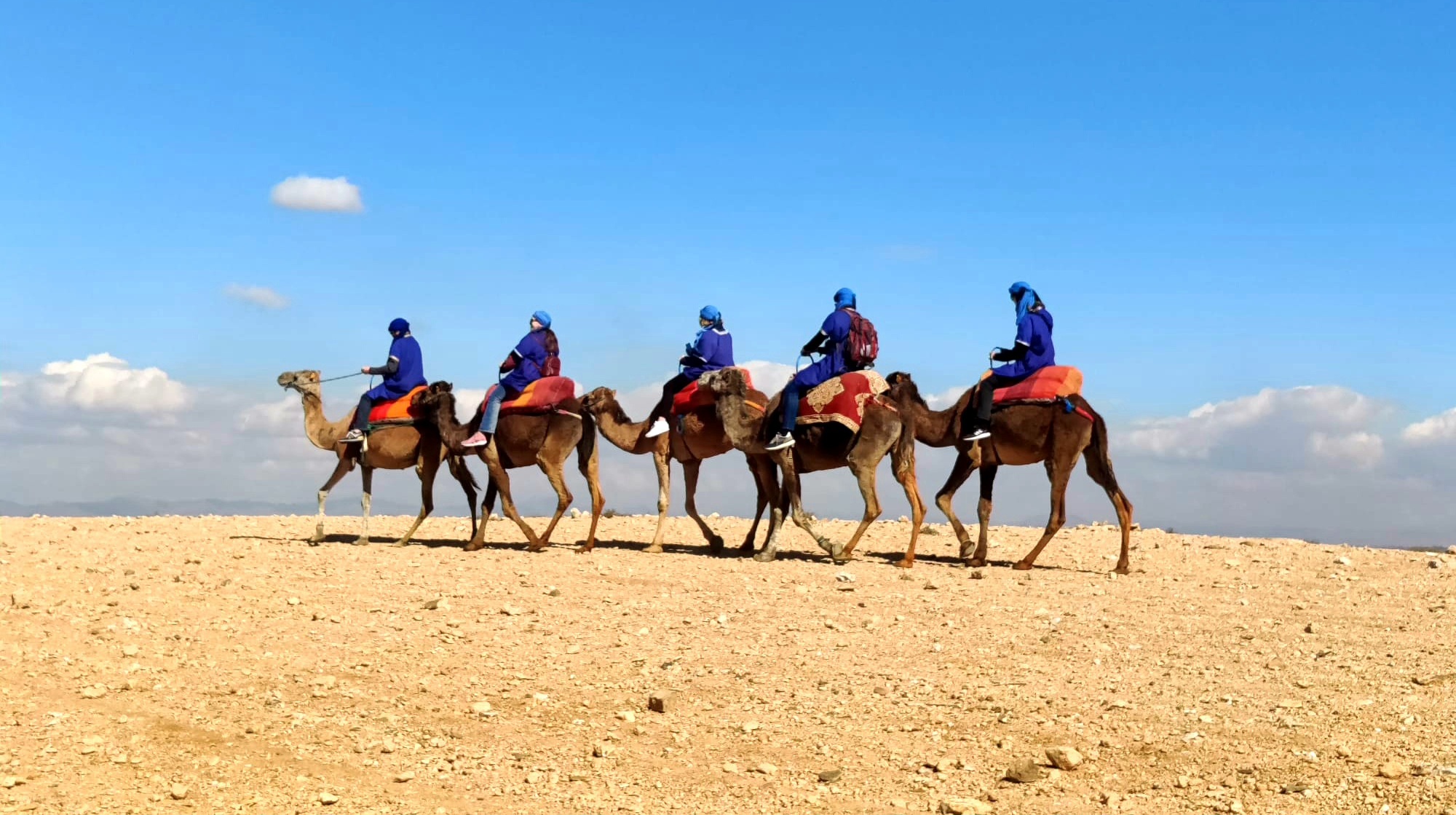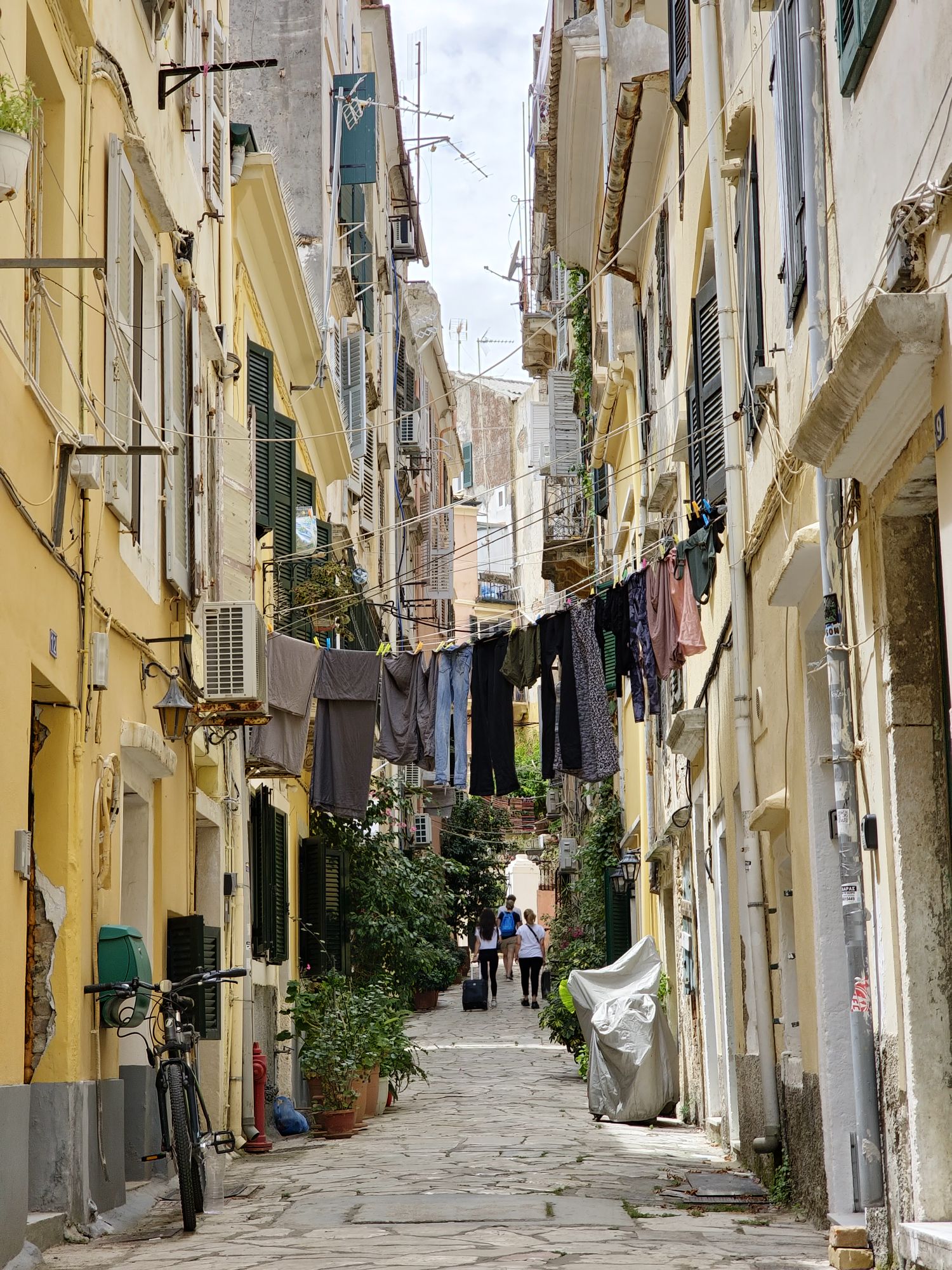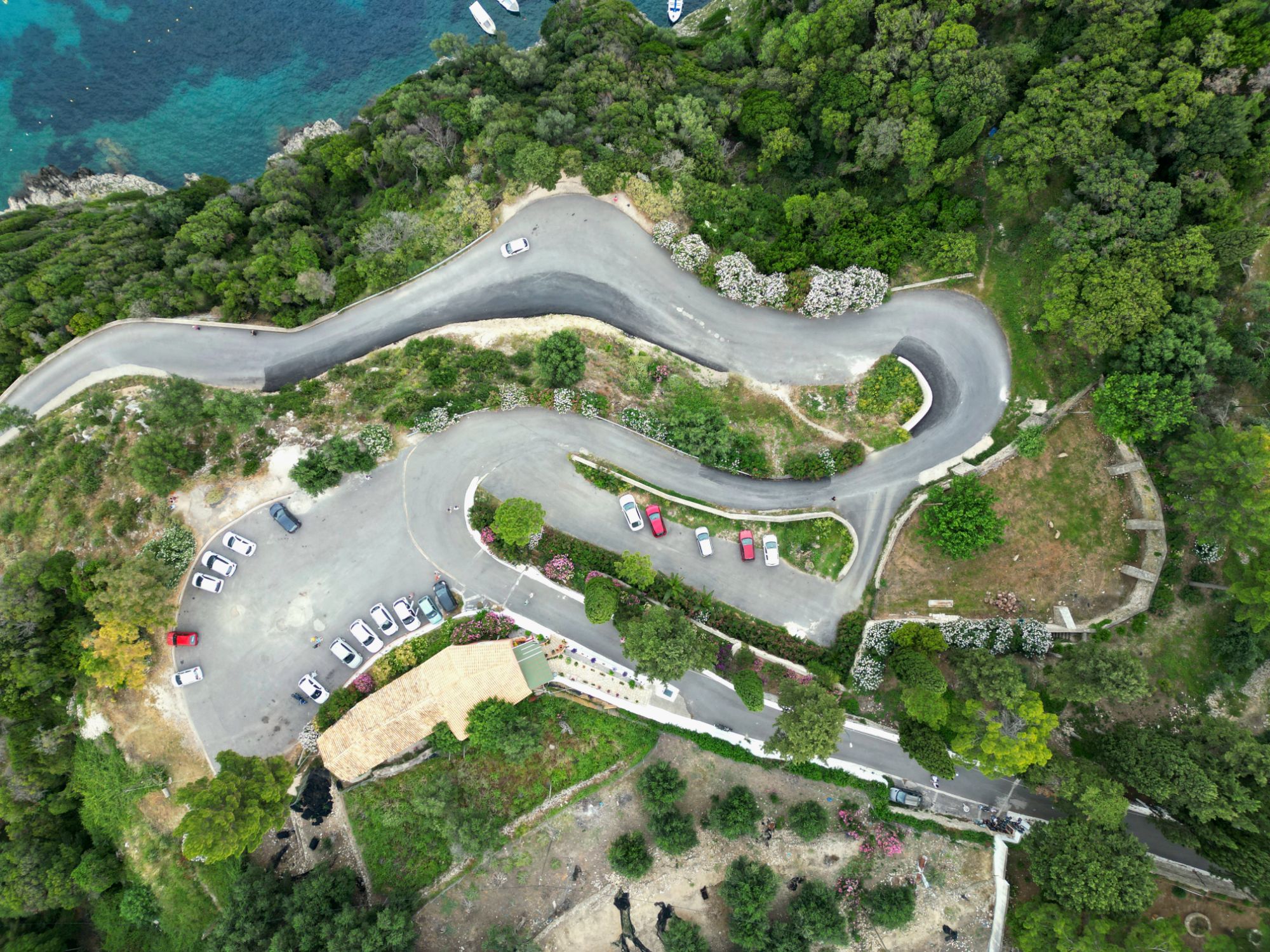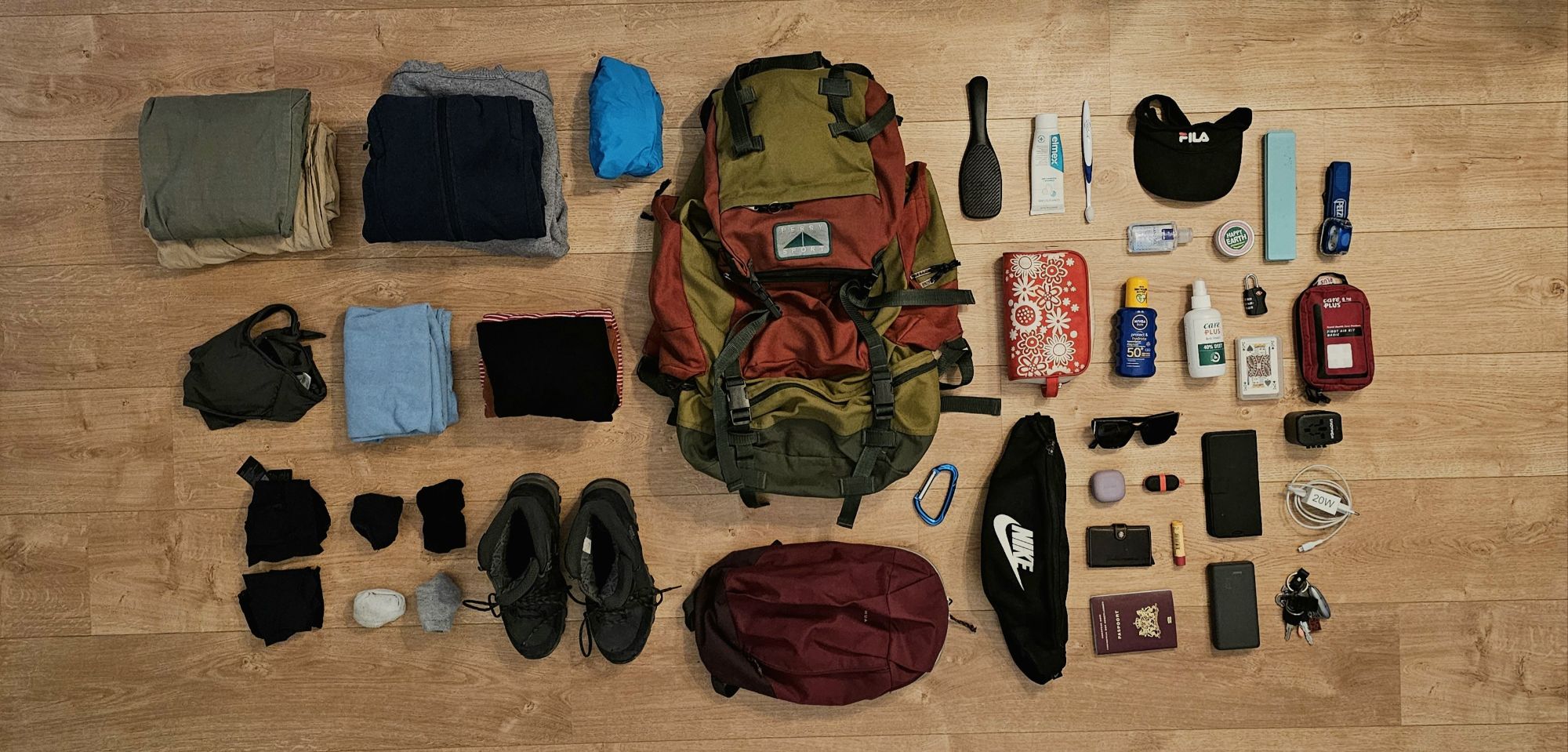For most travellers going to the desert, camel trekking is at the top of their list. And who can blame them? It a unique and unforgettable adventure to explore the desert on the back of these gentle giants. However, it’s important to be aware of the unethical side of this industry. When our trip to the Merzouga desert got canceled (read all about it in this post), we were brought to a last-minute camel tour in the Agafay desert to make up for it. We did not feel comfortable during our camel tour, and really wished we had known some of the red flags we’ll address in this blogpost.

Why do people ride camels?
Camels are one of the world’s oldest domesticated animals, with dating back to 3000 BC. They were primarily used for transportation across desert regions due to their remarkable ability to endure long distances without water and their ability to carry heavy loads. Historically, camels were crucial for trade and transport in the harsh desert environments.
💡 Tip: Don’t be confused when you notice your camel to only have one hump instead of two. Actually, only 6% of the world’s camel population has two humps!
Nowadays, camel riding is not solely a local practice anymore, a whole tourism industry has emerged around the activity. However, in recent years, growing awareness of animal welfare issues has led many tourists to shun activities perceived as exploitative. Think for example of elephant riding, swimming with dolphins, or petting tigers. But what about camel riding?
Should we be riding camels at all?
While most people agree that elephants and tigers should not be taken from the wild, camels have been part of our lives for centuries. PETA argues that camels suffer just as much as elephants and shouldn’t be ridden at all. They say that “for elephants and camels used for rides and carted from venue to venue, life bears no resemblance to a natural existence.”.
However, others compare camel riding to horse riding, saying it is okay as long as the animals are treated in a responsible and ethical manner. In addition, Charity Born Free states that there is really no clear evidence to suggest that riding camels is harmful.
💡 Did you know: Adult camels can carry loads of about 300 to 400 kilograms. They can go without water for up to two weeks and can travel up to 40 kilometers per day!


Therefore, if you decide that you want to ride a camel, we recommend that you do some research and check the reviews of tour operators before booking a camel ride. As a responsible traveler, it’s important to choose an ethical tour operator that prioritizes the well-being of the camels. Here are some tips to look out for when choosing your camel tour.
5 things to look out for:
- No more than one rider/100 kg per camel.
One way companies try to make more money is by putting two people on a camel’s back instead of one. Check if your tour operator has a weight limit. As a general guideline: Camels should be carrying no more than 100 kg on their back. - Check where and under what conditions the camels are kept between rides.
Camels need access to shade and water to avoid dehydration and heat exhaustion, especially if they are carrying people throughout the day. - Look at the camels before you agree to ride them.
Camels should be in good physical condition, with shiny coats and healthy body weight. If you notice that the camels appear underweight, exhausted, or have any visible signs of injury, it’s a sign that they are not being properly cared for. You can also see if the animal is in distress if they are trembling, jumping, or vocalizing. - Stay in the sandy desert. Camels are better suited for soft, sandy ground and any treks that force camels to walk on harder surfaces that their feet aren’t suited for, then it can be a torturous experience for these gentle giants.
- Opt for a ride of at least two hours or longer.
Longer treks not only minimize the repetitive strain but also offer a deeper, more authentic experience of nomadic life, giving riders a chance to form a connection with their camel.

Camel trekking can be a fantastic adventure, but it’s important to be mindful of the darker side of this industry and to choose an ethical tour operator. By doing so, you can have an unforgettable experience while supporting a sustainable and responsible tourism industry.













